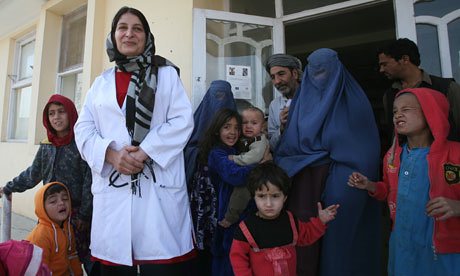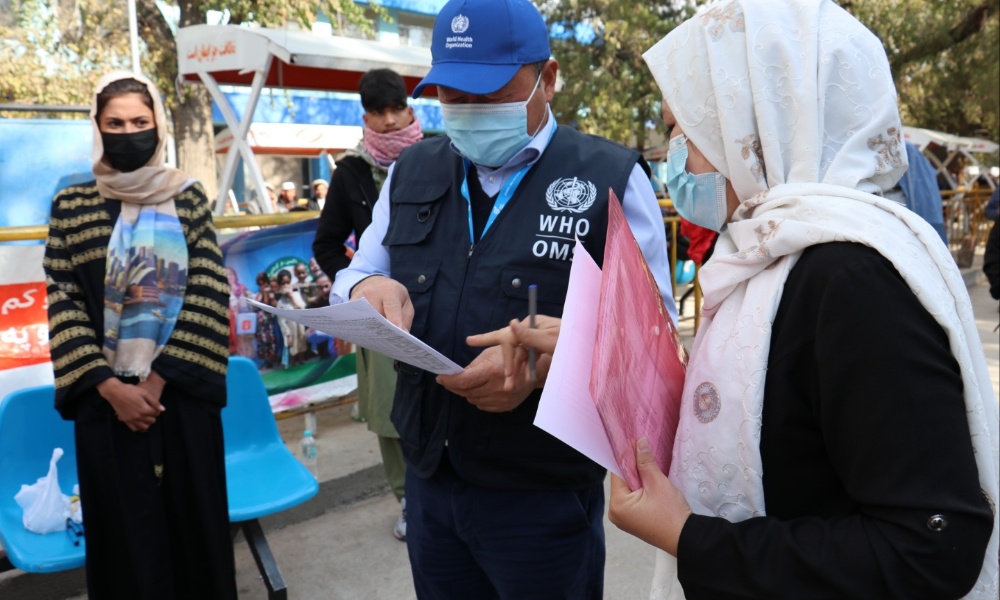Health
More than 3 million Afghans have no access to health services

An estimated three million Afghan people have no access or insufficient access to health services, the minister of public health said.
According to the findings of the Ministry of Public Health, the health status of women and children in Afghanistan is improving and communicable diseases are also on the decline.
But the findings also indicate that more than five provinces of Afghanistan have the lowest access to health services.
However, the ministry of public health claims to have health programs for Afghans to have full access to health services.
“We have taken serious measures to create 379 centers all across the country up to the next six months,” said Firuzuddin Firuz, minister of public health.
Despite facing serious accusations for involving in corruption, the minister of health ignores them and stresses on introducing a large number of the ministry’s employees who involve in corruption to general attorney.
“We have submit more than 64 cases of those who involve in corruption in the ministry of health,” Firuz added.
Afghanistan today suffers from one of the worst health crises in the world. Years of war and civil strife have left behind enormous poverty, a crumbling infrastructure, and a widespread landmine crisis.
The country is among leading nations on every global index of suffering. Life expectancy at birth is estimated at around 46 years, and one out of four children die before their fifth birthday.
The tragedy of the health emergency is that the most pervasive problems in Afghanistan have largely been controlled in other countries: chronic malnutrition and preventable diseases like diarrhea, respiratory infections, and measles.
On top of these basic health threats Afghanistan is also saddled with an extensive network of landmines that kill or maim more civilians than in any other country.

Health
Global organizations warn of health crisis due to aid cuts in Afghanistan

Global organizations are raising alarms about the impact of aid cuts on Afghanistan’s health sector and the reduction in funding for humanitarian organizations operating in the country.
UN-affiliated bodies have stated that the complete suspension of aid from the United States and the reduction of the 2025 budget could lead to the closure or suspension of nearly 2,000 healthcare centers across Afghanistan.
The United Nations Office for the Coordination of Humanitarian Affairs (OCHA) has further warned that if only 25 percent of the required funding is provided, 7 million out of the 9.3 million people in need of medical services will be left without access to healthcare.
The report highlights that without immediate and sufficient funding, child mortality rates could rise sharply, as malnutrition remains one of the leading causes of death for children under the age of five.
The World Food Programme (WFP) has also warned that Afghanistan is facing a severe malnutrition crisis among children, with the number of malnourished children expected to reach 3.5 million by 2025.
Recent reports from the WFP reveal that 8 out of 10 families in Afghanistan are unable to afford a sufficient diet, and 3 out of 4 families are being forced to borrow money to purchase basic food items.
UN agencies have stressed the urgent need for the international community to address the humanitarian crisis in Afghanistan and provide the necessary aid.
This comes after Afghanistan’s Ministry of Economy dismissed reports from some international organizations about the growing poverty in the country, labeling them as exaggerated and far from reality.
Health
Health minister meets with Qatari envoy over building of 400-bed hospital in Kandahar

The Ministry of Public Health has announced that Noor Jalal Jalali, the acting public health minister, met with Murdif Al-Qashouti, the Chargé d’Affaires of the Qatari Embassy in Kabul, to discuss the construction of a planned 400-bed hospital by Qatar, the provision of equipment for hospitals, and the enhancement of the capacity of health workers in Kandahar province.
According to a statement, the Acting Minister of Public Health emphasized the importance of improving the capacity of health workers and equipping hospitals with standard facilities to better address patients’ needs and provide essential health services. He considers Qatar’s cooperation to be crucial.
In this meeting, Al-Qashouti assured the IEA of Qatar’s commitment to supporting various health sectors in Afghanistan.
In November 2023, the Ministry of Public Health had announced that Qatar planned to build a 400-bed hospital in Kandahar. In September 2023, reports also emerged about Qatar Charity’s commitment to constructing this hospital.
However, Qatar has not yet started the actual construction of the hospital.
International organizations have repeatedly warned that attention must be given to Afghanistan’s health system, as the country cannot effectively manage patients and combat infectious diseases such as polio and tuberculosis without the support of global organizations.
Health
Majority of WHO-supported facilities in Afghanistan risk shutdown by June
As of 4 March 2025, 167 health facilities had shut down due to funding shortages, cutting off lifesaving medical care to 1.6 million people

The World Health Organization (WHO) in Afghanistan is deeply concerned that funding shortages could force the closure of 80 percent of WHO-supported essential health care services across the country.
Millions of people, including vulnerable populations such as women, children, the elderly, the displaced and returnees, will be left without access to critical medical care, the organization said in a statement.
As of 4 March 2025, 167 health facilities had shut down due to funding shortages, cutting off lifesaving medical care to 1.6 million people across 25 provinces.
WHO warned that without urgent intervention, another 220 facilities could close by June 2025, leaving an additional 1.8 million Afghans without access to primary health care.
In the worst affected regions – Northern, Western and Northeastern Afghanistan – more than a third of health care centres have shut down, raising alarms about an imminent humanitarian crisis.
“These closures are not just numbers on a report, they represent mothers unable to give birth safely, children missing lifesaving vaccinations, entire communities left without protection from deadly disease outbreaks,” said WHO Representative and Head of Mission in Afghanistan Dr Edwin Ceniza Salvador.
“The consequences will be measured in lives lost.”
Afghanistan is already battling multiple health emergencies, including outbreaks of measles, malaria, dengue, polio and Crimean-Congo haemorrhagic fever.
Without functioning health facilities, efforts to control these diseases are severely hindered. Over 16 000 suspected measles cases, including 111 deaths, were reported in the first two months of 2025. With immunization rates at critically low levels (only 51% for the first dose of the measles vaccine and 37% for the second), children are at heightened risk of preventable illness and death.
While some donors continue to support Afghanistan’s health sector, funding has been significantly reduced as development aid priorities have shifted. The needs, however, remain immense, and current support is not enough to sustain critical health care services for millions of Afghans, WHO stated.
“This is not just about funding. It is a humanitarian emergency that threatens to undo years of progress in strengthening Afghanistan’s health system,” said Salvador.
“Every day that passes without our collective support brings more suffering, more preventable deaths and lasting damage to the country’s health care infrastructure.”
-

 Latest News5 days ago
Latest News5 days agoAmnesty international urges Pakistan to halt Afghan deportations
-

 Latest News4 days ago
Latest News4 days agoAfghanistan-Iran-Europe railway corridor activated
-

 Business4 days ago
Business4 days agoAfghanistan ships first consignment to Europe via Khaf-Herat railway
-

 Business3 days ago
Business3 days ago36 mining contracts inked over the past year: Mines ministry
-

 Sport5 days ago
Sport5 days agoDe Kock fireworks see Kolkata thrash Rajasthan in IPL
-

 Latest News3 days ago
Latest News3 days agoDried fruit market in Herat booms ahead of Eid-al-Fitr
-

 Regional4 days ago
Regional4 days agoPowerful quake in Southeast Asia kills several, Myanmar declares state of emergency
-

 Latest News4 days ago
Latest News4 days agoUS may ask for military equipment left behind in Afghanistan: Trump















